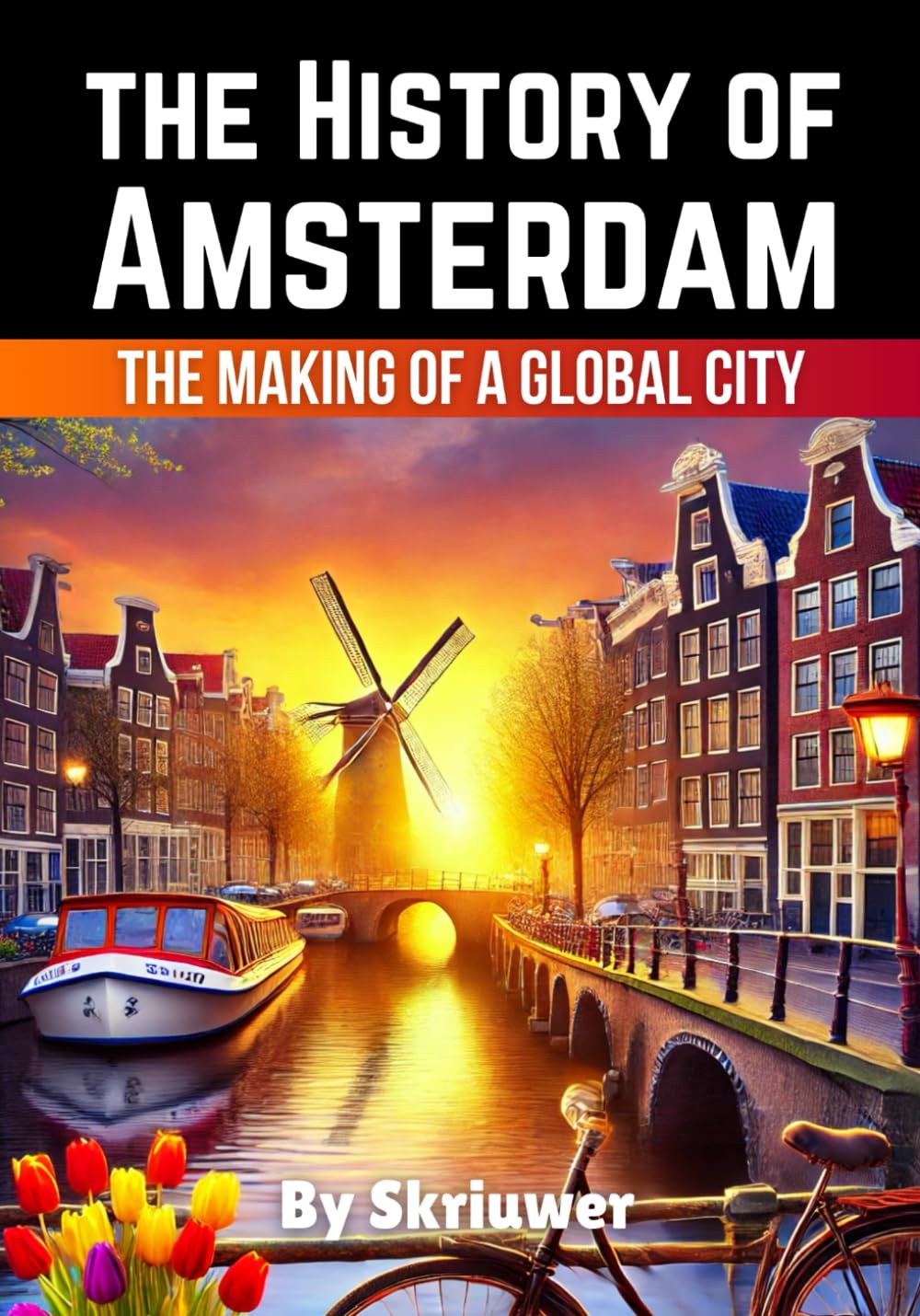The History of Amsterdam
The History of Amsterdam
Det gick inte att ladda hämtningstillgänglighet
The History of Amsterdam takes you on a detailed and interesting journey through one of the world’s most famous cities. From its beginnings as a small fishing village to becoming a global center for trade, culture, and progress, this book follows the fascinating story of Amsterdam over the years. Whether you're a history lover, a traveler, or just curious about how Amsterdam became the lively city it is today, this book offers clear insights and important details about its past.
The story starts by looking at how Amsterdam began, exploring the early settlements, the building of the dam that gave the city its name, and how trade was key to its early growth. You'll also learn about the religious and political factors that influenced Amsterdam’s development during the medieval period, setting the foundation for its future success.
As the book moves into Amsterdam’s Golden Age, it highlights the city’s growth into a major world power, led by the Dutch East India Company and its rise as a financial center. This period saw cultural growth, with stunning new buildings and a thriving arts scene, even as the city faced social and economic challenges that came with its success.
The book then guides you through the 18th and 19th centuries, covering the decline of Dutch power, the impact of French occupation, and the big changes brought by industrialization. As Amsterdam modernized, it became a center for urban growth and social change, paving the way for the city’s 20th-century transformation.
The 20th century is explored in detail, with chapters on Amsterdam’s experiences during World War I and World War II. You’ll learn how the city managed its neutrality during the first war, endured the hardships of German occupation during the second, and rebuilt itself after the wars. The book also discusses the post-war recovery, including the effects of the Marshall Plan, and highlights Amsterdam’s journey towards becoming a modern city.
In the later chapters, the book looks at how Amsterdam has adapted to a globalized world, embracing sustainability, new technology, and social inclusion. It also covers Amsterdam’s unique architecture, from its medieval roots to modern designs, and its role in shaping Dutch politics and international relations.
The History of Amsterdam also celebrates the city’s cultural contributions, from its impact on art, literature, and music to its role as a hub for festivals and public events. The final chapters reflect on Amsterdam’s lasting legacy and influence around the world, offering thoughts on what the future might hold for this ever-changing city.
Whether you're interested in Amsterdam’s role in history, its cultural importance, or its ongoing impact on the world, this book provides a complete and engaging look at the city’s past, present, and future.

Why Skriuwer.com?
-
Supporting Frisian Language
When you buy from Skriuwer, you're not just getting a book—you’re helping create more Frisian books and educational resources like LearnFrisian.com. Your support directly helps us preserve and grow the Frisian language for future generations.
-
Making Languages Accessible
We believe in making languages easy to learn and accessible. While Frisian is our passion, we also want to help people learn other key languages like Dutch and English by providing helpful resources and learning tools.
-
Investing in Future Projects
Your purchase fuels more than just current projects. It helps us dream big and plan for the future, whether that’s developing new books, launching language-learning platforms, or supporting other educational initiatives. You're helping us build something lasting!

Bevarande av det frisiska språket
På Skriuwer.com tror vi att det frisiska språket är mer än bara ord – det är en levande del av vårt arv. Men precis som många minoritetsspråk står frisiskan inför överlevnadsutmaningar i en ständigt föränderlig värld. Det är därför vår mission är enkel men avgörande: att hålla det frisiska språket levande och blomstrande för framtida generationer.
Varje bok vi skapar, varje berättelse vi berättar och varje ord vi publicerar är en del av en större insats för att bevara och fira den frisiska kulturen. Men vi kan inte göra det ensamma. Med din hjälp kan vi göra en verklig skillnad.

Hur Du Kan Hjälpa:
Köp en Bok: När du köper en av våra böcker lägger du inte bara till ett vackert litterärt verk i din samling – du stödjer direkt bevarandet av det frisiska språket. Varje bok hjälper till att sprida rikedomarna i vårt språk till fler människor. Du kan också bidra till denna sak genom att lära dig frisiskan via vår partnersida, www.learnfrisian.com.
Donera: Om du tror på vårt uppdrag kan du också göra en insats för att hjälpa oss att fortsätta vårt arbete. Oavsett om det handlar om att finansiera nya publikationer, stödja utbildningsprogram eller hjälpa oss att nå fler frisistalare, kan din donation ha en varaktig inverkan. Klicka bara på knappen nedan för att bidra!
Tillsammans kan vi säkerställa att det frisiska språket förblir en levande del av vår värld. Följ med oss på denna resa – ditt stöd idag innebär en ljusare framtid för vårt språk imorgon.

